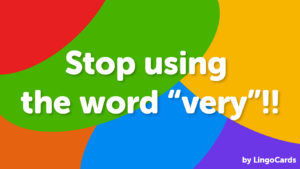Do you know that the concept of the verb come and go in Japanese and English are different? Not only that, the usage of come…
は (wa) and が (ga) are probably the most frequently used particles in Japanese. At the same time, these two are confusing since there are…
In English, we can use ‘to give’ and ‘to receive’ regardless who is giving and who is talking. Differently, in Japanese, there are two verbs…
In the previous lesson about ‘This’ and ‘That’ in Japanese, we concluded that the prefix: ‘ko-’ is used when ‘the object near to the speaker’,…
皆さんこんにちは! お元気ですか? Just like Italian and Spanish, there are three words of demonstration in Japanese: Object near to the speaker, rather than the listener…
Both 不 (bù) and 沒 (méi) are negative determiners in Chinese. They can be put in front of a verb or an adjective, in order to convert the…
The three “de” particles of Chinese,「的」,「地」and「得」; are all pronounced as “de” with the neutral tone. Even though they sound the same, they have completely different…
High and tall, are used to describe vertical distance and length. These two words seem like synonyms, but they are not really the same.…
Breath deeply or breathe deeply? Take a deep breath or take a deep breathe? Breath or Breathe? It is a difference of one letter…
Even though we use English in a daily basis, the choice of word can still be annoying from day to day. Such as in what…
One of the most common mistakes in English usage is misusing the words “good” and “well”. In short, good is an adjective, while well is…
There are two concepts of “we/us/our/ours” in Bahasa Indonesia (Indonesian). Although all of them (from subject pronouns to possessive adjectives) are defined as “kami” and…
Everyday vs Every Day There are lots of things that we do every day. Everyday we sleep, we walk, we speak. But when you are…
Complete and Finish, they are the same right? Think about it! The race is completed vs The race is finished The game is completed vs…
Very hot, very cold, very expensive, very ugly. Yes! The magic word of “very” really applies to basically everything. But imagine: “The weather is…
Rise or Raise? Rise your hand or raise your hand? The sun rises or the sun raises? Are you 100% sure with your answer? Why…















